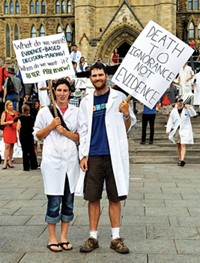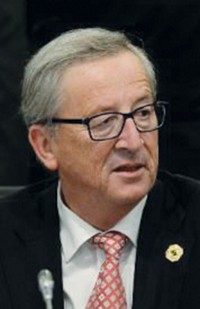Advertisement
Grab your lab coat. Let's get started
Welcome!
Welcome!
Create an account below to get 6 C&EN articles per month, receive newsletters and more - all free.
It seems this is your first time logging in online. Please enter the following information to continue.
As an ACS member you automatically get access to this site. All we need is few more details to create your reading experience.
Not you? Sign in with a different account.
Not you? Sign in with a different account.
ERROR 1
ERROR 1
ERROR 2
ERROR 2
ERROR 2
ERROR 2
ERROR 2
Password and Confirm password must match.
If you have an ACS member number, please enter it here so we can link this account to your membership. (optional)
ERROR 2
ACS values your privacy. By submitting your information, you are gaining access to C&EN and subscribing to our weekly newsletter. We use the information you provide to make your reading experience better, and we will never sell your data to third party members.
Business
Brexit pondered at European science conference
U.K. scientists state need to retain funding, mobility
by Alex Scott
August 1, 2016
| A version of this story appeared in
Volume 94, Issue 31

Amid lofty talk about innovation and science policy at last week’s EuroScience Open Forum (ESOF) in Manchester, England, scientists and industrialists called for action to blunt the impact of Britain’s planned exit from the European Union. The so-called Brexit is expected to be implemented in about two years.
Anne Glover, former science adviser to the president of the European Commission (EC) and former adviser to the Scottish government, said she is pushing for the U.K. government to exempt U.K.-based scientists from any future restrictions on mobility after the Brexit. Scientific collaboration between the U.K. and EU is extremely important, she said.
Glover also proposed that U.K. funding of about $1 billion per year for Horizon 2020, the EU’s flagship science research program, be maintained.
Glover’s comments were echoed by other ESOF speakers, including Juergen Maier, chief executive of Siemens UK, and Robert-Jan Smits, director-general of the EC’s department for research and innovation.
“We hope of course that we can continue operations as they are,” Smits told C&EN. “For the time being, it is all business as usual. But there will be no more business as usual after two years. Yes, it’s a huge concern for us. We are utterly shocked by what happened.”
Glover and some other ESOF speakers were critical of Jo Johnson, the U.K. government minister for science, because he attended ESOF but wouldn’t engage with delegates in discussions about the Brexit. Still, Siemens’s Maier said recent discussions he had with U.K. officials have convinced him that the U.K. government is listening to the concerns of the academic and industrial communities.





Join the conversation
Contact the reporter
Submit a Letter to the Editor for publication
Engage with us on Twitter